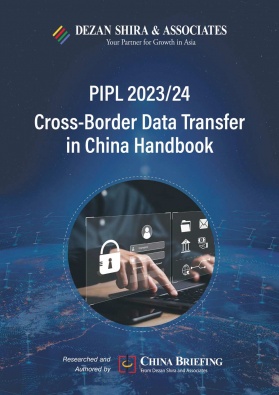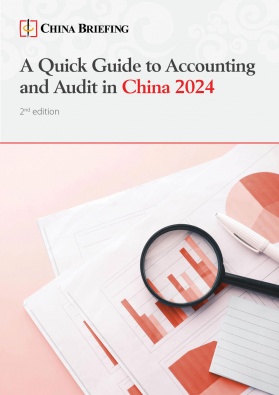Hong Kong Removed from EU Watchlist Following Changes to Regulations on Foreign-Sourced Income
Hong Kong has been removed from an EU watchlist of non-cooperative tax jurisdictions after the city made amendments to its foreign-sourced income exemption (FSIE) regime. Under the new changes, multinational enterprises that don’t meet certain requirements for business activity, research and development contributions, or equity participation may be required to pay tax on certain types of foreign-sourced passive income. We explain the new Hong Kong FSIE regime and discuss the potential impact on businesses.
On February 20, 2024, the EU Council released a decision to remove Hong Kong from its “state of play” document which lists “non-cooperative jurisdictions” that have unfair tax legislation enabling companies to evade taxes on certain forms of income.
Hong Kong was added to the so-called ‘grey list’ of non-cooperative tax jurisdictions in its regularly updated watchlist, on October 5, 2021. Under the Council conclusions on the revised EU list of non-cooperative jurisdictions for tax purposes, Hong Kong was listed under Annex II, which tracks “jurisdictions that do not yet comply with all international tax standards but have committed to reform”.
Hong Kong had previously committed to amending its tax regime to tackle the issues surrounding its foreign-sourced income exemption (FSIE) regime. This was acknowledged in the EU decision in 2021, and Hong Kong was given until December 31, 2022, to update its legislation. Now, Hong Kong has been removed from the watchlist because it has fulfilled its commitments by amending its tax regime to tackle issues surrounding FSIE.
Background
Hong Kong was previously included on the EU’s watchlist in 2017 and 2018 but was subsequently removed in 2019 after making the requisite changes to its laws to improve its tax environment and increase financial transparency.
In 2021, Hong Kong was re-added to the watchlist due to concerns over its taxation policies, particularly regarding passive income. Passive income includes income from dividends, interest, intellectual property (IP), and equity interest disposal gain.
At the time of its addition to the watchlist, Hong Kong imposed no profits tax on these forms of income earned offshore, regardless of whether the company had a substantial presence in the region or how the income was generated. This made the city attractive to MNEs seeking to minimize their tax obligations by channeling income through Hong Kong. While this practice is not illegal, it contradicts international efforts to prevent a “race to the bottom” in corporate taxation.
The EU’s decision to include Hong Kong on the watchlist was primarily based on worries about “double non-taxation” of passive income. This refers to situations where companies avoid paying taxes on income from offshore passive sources both in the jurisdiction where it was generated and in Hong Kong, where the company is registered and declares its profits.
Though Hong Kong also exempts active revenue generated offshore from profits tax, the focus of the listing in 2021 was specifically on the taxation of passive income and did not consider the profits tax exemption on active income.
Changes to Hong Kong’s FSIE regime
In response to the EU Council’s recommendations, Hong Kong has amended its FSIE regime for passive income so that MNEs that do not have a sufficiently substantive presence in Hong Kong will be required to pay profits tax on certain types of foreign-sourced passive income.
In effect, this will mean that MNEs that are incorporated in Hong Kong purely for tax purposes and that do not have actual operations in the region will be required to pay profits tax on this type of income, while companies with actual operations in Hong Kong can continue to enjoy the exemption.
The Hong Kong government introduced the first part of its new FSIE regime in December 2022, when the Inland Revenue (Amendment) (Taxation on Specified Foreign-sourced Income) Ordinance 2022 (the “2022 Amendment Ordinance”) was enacted.
The 2022 Amendment Ordinance added interest, dividend, IP income, and equity interest disposal gain as types of passive income derived overseas that would be applicable under the new FSIE regime. This amendment took effect on January 1, 2023.
However, in December 2022, the EU released an updated Guidance on FSIE Regimes, which specified disposal gains as a class of income that should be covered by an FSIE regime. It also added the “economic substance requirement” as a condition for taxpayers to be exempt from profits tax on certain types of passive income.
As such, the Hong Kong government further amended its FSIE regime to comply with this guidance, and in December 2023 – released the enacted the Inland Revenue (Amendment) (Taxation on Foreign-sourced Disposal Gains) Ordinance 2023 (the 2023 Amendment Ordinance). This ordinance expanded the scope of foreign-sourced disposal gains to cover assets other than shares or equity interests. The 2023 Amendment Ordinance came into effect on January 1, 2024.
Profits tax under the new FSIE regime
Hong Kong still implements a territorial source principle of taxation, meaning only profits derived from a trade, profession, or business carried out in Hong Kong are subject to profits tax. Profits sourced elsewhere are not subject to Hong Kong profits tax.
As such, under the new FSIE regime, income that is received in Hong Kong by an MNE carrying out a trade, profession, or income in Hong Kong will be subject to profits tax. In addition, MNEs that do not meet certain substance requirements for specific forms of foreign-sourced income will be required to pay profits tax on these forms of foreign-sourced income. If MNEs do meet the substance requirements, then the territorial source principle of taxation applies, and the MNE will be exempt from paying profits tax on the specified foreign-sourced income to which the substance requirement applies.
There are three key substance requirements stipulated in the Inland Revenue Ordinance (IRO), Hong Kong’s tax law, summarized in the table below.
|
Substance Requirements for Profits Tax Exemption of Foreign-Sourced Income |
||
| Substance requirement | Applicable income | Eligibility |
| Economic substance requirement | Interest, dividend, or non-IP disposal gain (including equity interest) |
|
| Nexus requirement | IP assets and general IP (such as royalties)*
Qualifying IP income can enjoy preferential tax treatment based on a nexus ratio which is defined as the qualifying expenditures as a proportion of the overall R&D expenditures that have been incurred by a taxpayer to develop an IP asset. |
Qualifying IP income:
|
| Participation requirement | Dividends and equity interest (only, no other disposal gain) |
Subject to certain anti-abuse rules that disallow the participation exemption. |
| *Only a certain portion of the income derived from qualifying IP income can be exempt from profits tax.
Source: Hong Kong Inland Revenue Department |
||
MNEs are exempted from paying profits tax on the specified foreign-sourced income only in the year in which they qualify for one of the substance requirements and in which they accrue the income in question. Exceptions are given to disposal gain derived from an intra-group transfer where the intra-group transfer relief applies.
How will the change impact businesses in Hong Kong?
The new FSIE regime will mainly impact MNEs that do not meet the substance requirements and therefore will be subject to an additional tax burden on certain types of foreign-sourced income.
However, as Hong Kong still implements the territorial source principle of taxation, many companies with operations in Hong Kong will still be able to enjoy the city’s favorable low-tax regime, including the exemption on foreign-sourced income.
MNEs registered in Hong Kong, or MNEs that have entities registered in Hong Kong, are advised to review the income and operations of all their entities to assess whether they will be eligible for profits tax exemptions under the substance requirements.
If it turns out that they do not satisfy the substance requirements, they may need to pay supplementary tax, file extra tax forms, or evaluate whether they need to restructure their business.
The removal of Hong Kong from the EU’s watchlist also signals to the world that the city is willing and active in cooperating with international partners and is intent on complying with international law. At the same time, the city is maintaining the favorable tax regime that has made it so attractive to businesses from all over the world. The city’s proactive approach to implementing necessary changes reassures businesses of its robust tax regulations and secures its place as a global financial hub.
About Us
China Briefing is written and produced by Dezan Shira & Associates. The practice assists foreign investors into China and has done so since 1992 through offices in Beijing, Tianjin, Dalian, Qingdao, Shanghai, Hangzhou, Ningbo, Suzhou, Guangzhou, Dongguan, Zhongshan, Shenzhen, and Hong Kong. Please contact the firm for assistance in China at china@dezshira.com.
Dezan Shira & Associates also has offices in Vietnam, Indonesia, Singapore, United States, Australia, Germany, Italy, India, and Dubai (UAE). We also have partner firms assisting foreign investors in The Philippines, Malaysia, Thailand, Bangladesh.
- Previous Article China’s New Draft Regulations for After-School Tutoring
- Next Article China’s Dairy Industry – Market Trends and Opportunities








